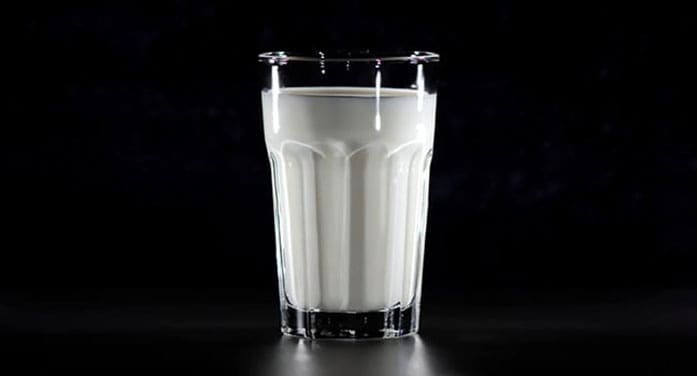 With the explosion of plant-based milk alternatives flooding the market, can cow milk co-exist?
With the explosion of plant-based milk alternatives flooding the market, can cow milk co-exist?
Canada’s dairy industry will struggle to survive the competition unless it reconnects with its consumers.
Until now, milk wars have been international. Canada’s dairy market is highly regulated through its contentious supply management system. Quotas and high tariffs are used to manage supply, ensuring production generally matches consumer demand.
This has caused no end of, ahem, sour milk within and outside our borders. While supply management has kept smaller dairy farms alive in Quebec, giving us food security, the system has also seen consumers pay exorbitant prices for cheese. It’s created a delicacy market for products otherwise considered ordinary in their home country and a black market for the rest.
The real threat to our cow-based command economy just might be consumers’ whet appetite for choice in a highly regulated dairy market.
The new kids on the block seem to get this.
Founder and CEO Nima Bahrami says the need for choice inspired him to create his plant-based startup dairy company bettermoo(d). The tenacious inventor has created milk derived from oats and milk derivatives flavoured to taste just as good as the real thing.
 “The idea was if you’ve ever had dairy from the Alps region in Europe, we wanted to incorporate what those cows eat because that really impacts the flavour profile of what they produce,” says Vancouver resident Bahrami, 31.
“The idea was if you’ve ever had dairy from the Alps region in Europe, we wanted to incorporate what those cows eat because that really impacts the flavour profile of what they produce,” says Vancouver resident Bahrami, 31.
“That’s why the dairy is so good from that region. We wanted to include those herbs into our products to capture that,” says Bahrami.
He is particularly pleased that rocker Bryan Adams, a long-time vegan, recently joined the company as a founding member and “significant” investor.
The partnership is a testament to the taste of bettermoo(d) ’s products, which are still in development. Bahrami “cold-called” Adams via Instagram and, to his great surprise, began a conversation. “I was very shocked he wrote back,” he says. “I still can’t believe he answered and we are now working together.”
Adams, who is from North Vancouver, conducts regular video calls with the team and will be in Vancouver next month to help promote bettermoo(d) ’s first product, Moodrink. The product is infused with bettermoo(d)’s proprietary blend of herbs, similar to those eaten by pasture-raised cows in the Alps prior to the introduction of mass factory farming of cows for milk.
Adams has been championing the values of a plant-based diet for over three decades and such values have become mainstream. It’s no longer just the lactose intolerant buying milk alternatives, which now include products made from soy, oat, almond, cashew and coconut.
When Starbucks gets involved, you know the plant-based dairy industry is no longer just a fad. Demand was so high that Starbucks ran out of oat milk a month after introducing it to its menus earlier this year.
That’s cause for concern for the troubled dairy industry, which so far has focused on fighting semantics. The worldwide industry, including in Canada, has launched major lobbying efforts to keep language such as milk, cheese, cream and yogurt exclusive to products made from animals.
They’re winning the battle but risk losing the war. After all, most people buying almond milk understand it’s made from almonds, not cows. Why else would they purchase the products?
The dairy industry needs help in authentically relating to consumers its shared values about things like animal welfare and the environment. So far, its efforts appear to be missing the mark.
The recent slick advertising campaigns by the Dairy Farmers of Canada, for one, fail to recognize how consumers really communicate. As Bahrami showed by getting the attention of Adams through Instagram, modern consumers engage through grassroot authenticity on social media. Adams has 880,000 followers on Instagram and 650,000 on Twitter and uses both platforms to promote his music and raise environmental, animal rights and dietary awareness.
This is where the real conversations are happening and where the dairy farmers are barely found.
Bahrami knows this. “In the long run, it’s not going to matter whether we call it milk or Moodrink. What’s driving consumers is their goals and purchasing what they want based on what they believe in.”
Tomato, tomahto. Yogurt, moogurt. It’s a moot point when it comes to making space on the shelves for dairy choices.
Paula Arab is a writer and author of the upcoming book Hockey Daughter.
Paula is a Troy Media contributor. For interview requests, click here.
The views, opinions and positions expressed by columnists and contributors are the authors’ alone. They do not inherently or expressly reflect the views, opinions and/or positions of our publication.
© Troy Media
Troy Media is an editorial content provider to media outlets and its own hosted community news outlets across Canada.


